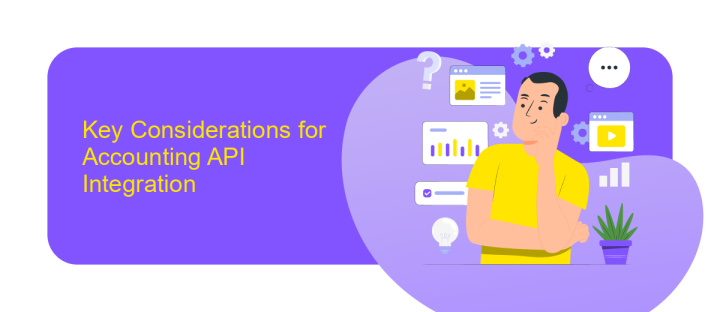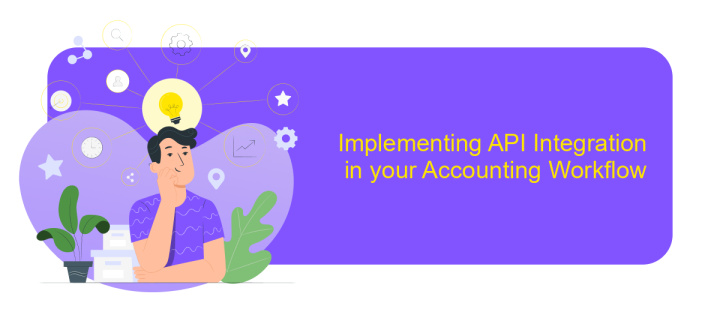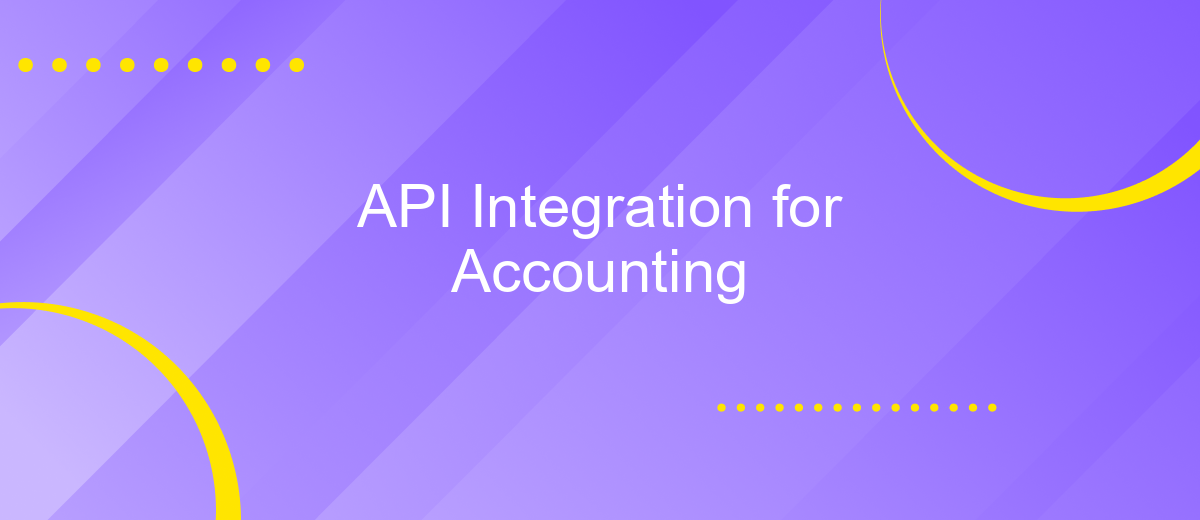API Integration for Accounting
In today's fast-paced digital landscape, seamless API integration has become a cornerstone for enhancing accounting processes. By connecting various software systems, APIs enable real-time data exchange, streamline workflows, and reduce manual errors. This integration not only improves efficiency but also provides businesses with valuable insights and greater financial control. Explore how API integration is transforming the accounting industry, driving innovation, and setting new standards for operational excellence.
Understanding API Integration and its Benefits for Accounting
API integration in accounting is transforming how businesses manage their financial data. By enabling seamless communication between different software applications, APIs allow for real-time data exchange and automation of routine tasks. This integration reduces manual data entry, minimizes errors, and enhances the accuracy of financial reporting. As a result, businesses can make more informed decisions based on up-to-date financial information.
- Streamlined data flow between accounting systems and other business applications
- Automated synchronization of financial data, reducing manual intervention
- Improved accuracy in financial reporting and analysis
- Enhanced ability to customize and scale accounting processes
- Faster access to financial insights for strategic decision-making
By leveraging API integration, accounting departments can operate more efficiently and focus on strategic tasks rather than manual data management. This technological advancement not only saves time but also empowers businesses to respond swiftly to market changes. As API technology continues to evolve, its role in accounting will likely expand, offering even greater opportunities for innovation and efficiency. Embracing these integrations is crucial for companies looking to maintain a competitive edge in today's fast-paced business environment.
Key Considerations for Accounting API Integration

When integrating an accounting API, it's crucial to assess the compatibility between the API and your existing accounting software. This involves understanding the data formats and protocols used by both systems to ensure seamless data exchange. Security is another key consideration; ensure that the API provides robust authentication mechanisms, such as OAuth, to protect sensitive financial data. Additionally, evaluate the API's documentation and support resources to facilitate a smooth integration process and resolve potential issues efficiently.
Another important consideration is the scalability of the API. As your business grows, your accounting needs may evolve, requiring an API that can handle increased data volume and complexity. Services like ApiX-Drive can be invaluable in this context, offering tools to automate and streamline the integration process without extensive coding. By leveraging such platforms, you can reduce the time and resources needed for integration, allowing your team to focus on core business activities while ensuring reliable data synchronization across systems.
Popular Accounting APIs and their functionalities

Integrating accounting APIs can significantly streamline business operations by automating financial processes. These APIs offer various functionalities that cater to different accounting needs, making them indispensable tools for businesses of all sizes.
- QuickBooks API: Provides seamless access to financial data, allowing businesses to manage invoices, expenses, and payroll efficiently.
- Xero API: Offers robust features for managing bank transactions, invoices, and real-time financial reporting, enhancing decision-making processes.
- FreshBooks API: Specializes in automating billing and invoicing, providing time-tracking capabilities for project management.
- Sage API: Facilitates comprehensive financial management, including inventory, sales, and purchase order processing.
- Zoho Books API: Integrates with various applications to manage accounting, inventory, and customer relationship management seamlessly.
These accounting APIs not only improve accuracy and efficiency but also integrate with other business software, creating a cohesive ecosystem. By leveraging these tools, businesses can focus more on strategic growth rather than getting bogged down by manual accounting tasks. As technology evolves, these APIs continue to expand their capabilities, offering even more sophisticated solutions for financial management.
Implementing API Integration in your Accounting Workflow

Integrating an API into your accounting workflow can significantly enhance efficiency and accuracy. By automating data exchange between different systems, you reduce manual entry errors and save valuable time. APIs enable seamless communication between your accounting software and other business applications, ensuring that your financial data is always up-to-date and consistent across platforms.
To successfully implement API integration, start by identifying the specific accounting tasks that can benefit from automation. Consider the systems you currently use and evaluate their compatibility with API technology. It's crucial to choose APIs that are well-documented and supported to ensure smooth integration.
- Identify key accounting processes for automation.
- Assess compatibility of current systems with APIs.
- Select well-documented and supported APIs.
- Test the integration thoroughly before full deployment.
- Monitor and optimize the integration regularly.
Once you've set up the API integration, it's important to test it thoroughly to ensure all data flows correctly between systems. Regular monitoring and optimization will help you maintain the efficiency and reliability of your accounting processes. With the right API integration, your accounting workflow can become more streamlined, allowing you to focus on strategic financial planning and decision-making.
Best Practices and Security Measures for Accounting API Integration
When integrating accounting APIs, it is essential to adhere to best practices to ensure seamless functionality and data integrity. Firstly, always use version control for APIs to manage updates and changes effectively. This helps in maintaining compatibility and reduces the risk of breaking integrations. Additionally, leveraging a service like ApiX-Drive can simplify the process by providing a user-friendly platform for connecting various accounting software without extensive coding. Thoroughly test the integration in a sandbox environment before deploying it in a live setting to identify potential issues and ensure smooth operation.
Security measures are paramount when dealing with sensitive financial data. Implement strong authentication mechanisms, such as OAuth 2.0, to safeguard access. Regularly update your security protocols to protect against emerging threats. Encrypt data both in transit and at rest to prevent unauthorized access. Moreover, conduct regular audits and monitor API activity to detect and respond to any suspicious behavior promptly. By following these practices, you can ensure a secure and efficient accounting API integration that protects both the data and the integrity of the financial processes.
FAQ
What is API integration in accounting?
How can API integration benefit my accounting processes?
What types of data can be integrated using APIs in accounting?
Is it difficult to set up API integration for accounting software?
What should I consider when choosing an API integration tool for accounting?
Time is the most valuable resource in today's business realities. By eliminating the routine from work processes, you will get more opportunities to implement the most daring plans and ideas. Choose – you can continue to waste time, money and nerves on inefficient solutions, or you can use ApiX-Drive, automating work processes and achieving results with minimal investment of money, effort and human resources.

